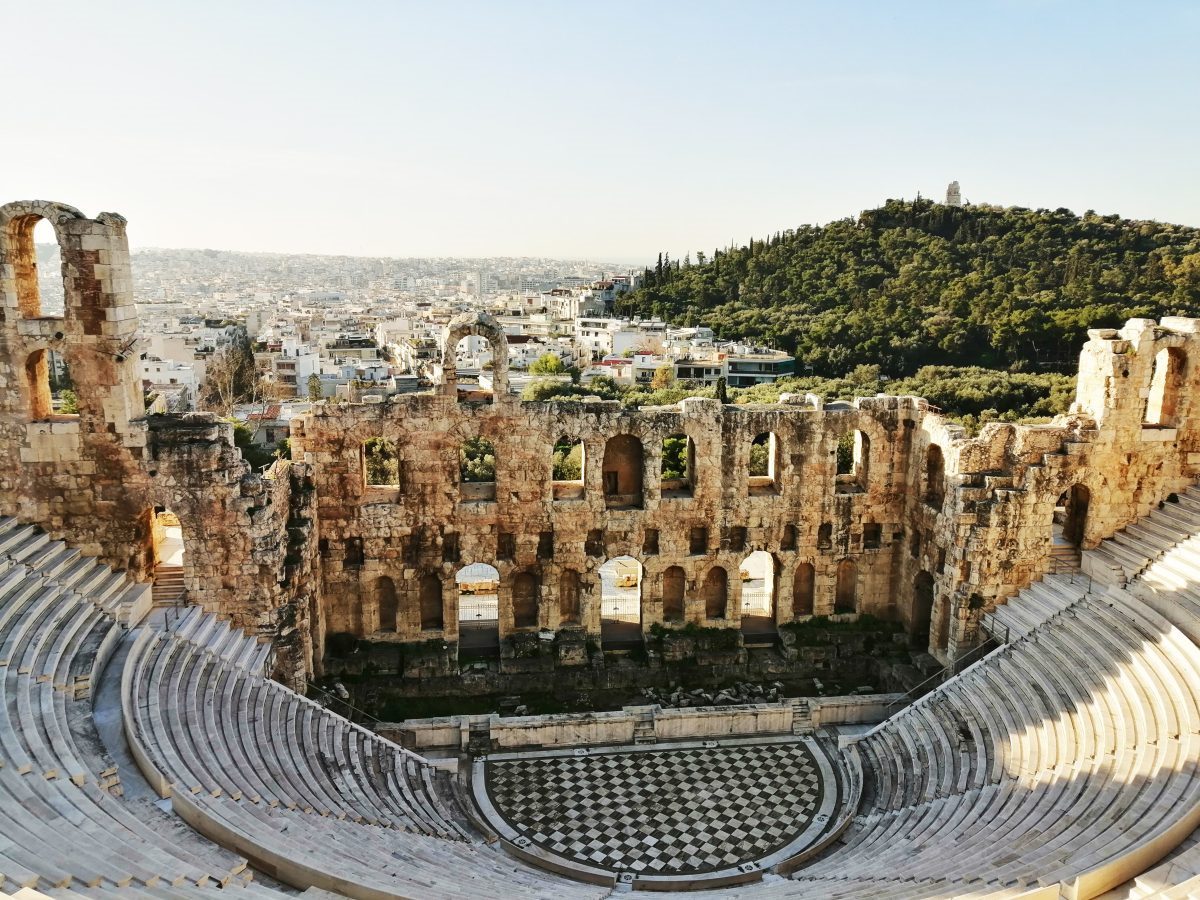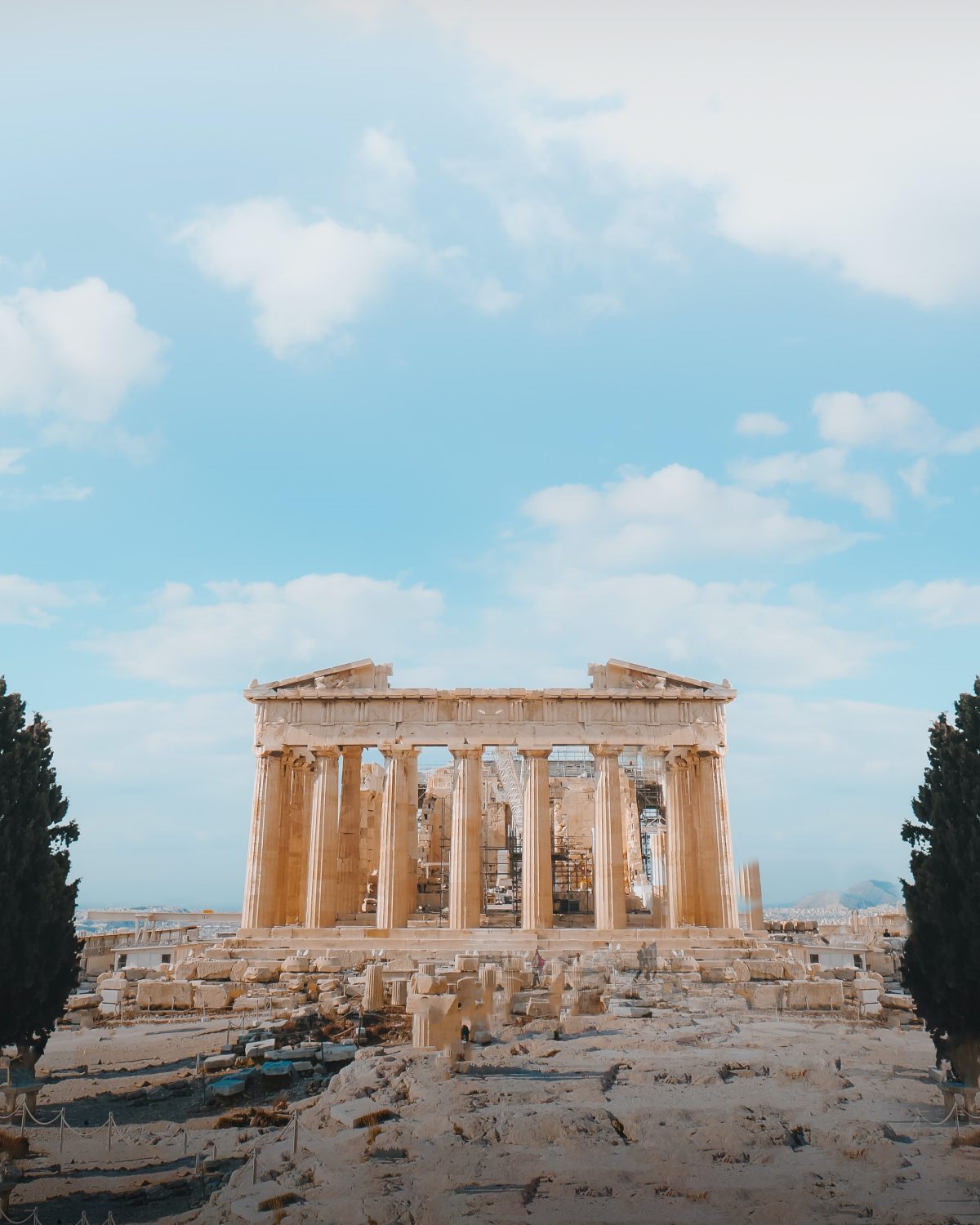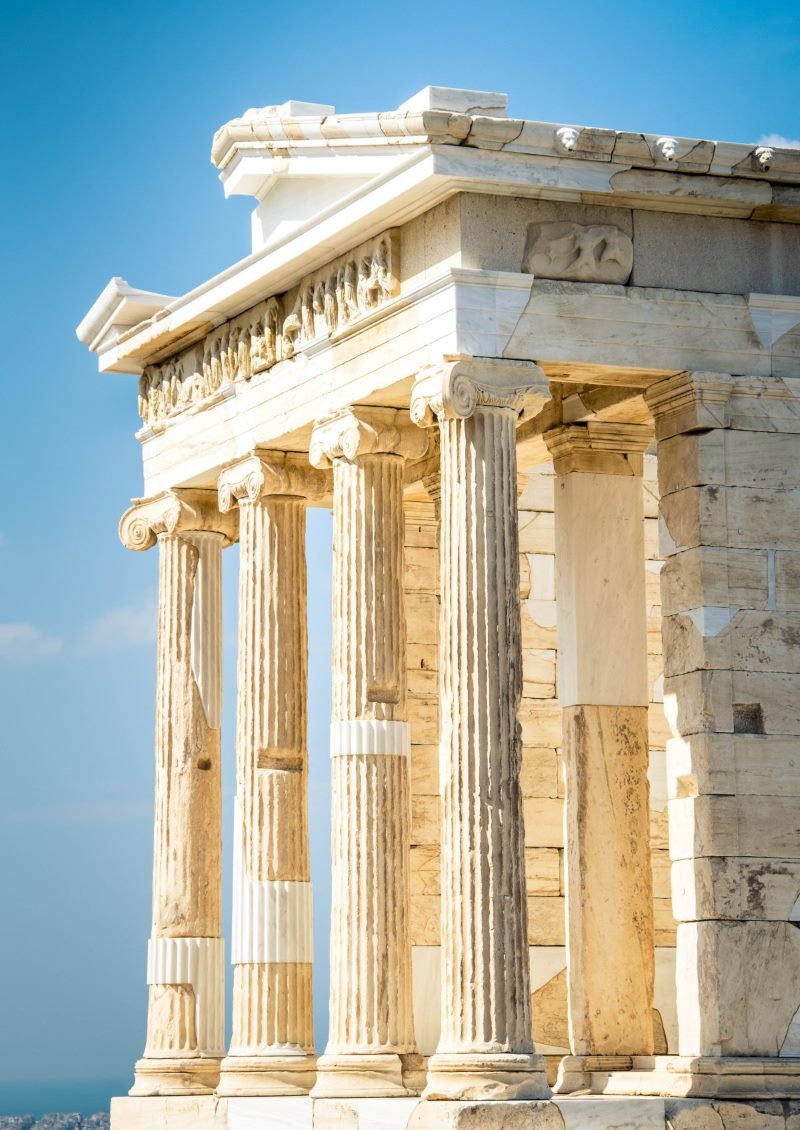How to Plan Your Athens 3 Day Meteora Delphi Rail Tour
If you are planning a visit to Greece, you must not miss out on the fantastic Meteora Delphi Rail Tour. This three-day excursion takes you on an unforgettable adventure to explore two ancient cities full of history and breathtaking landscapes. From Athens, you will travel to Kalambaka and Meteora, then to Livadia and Delphi before heading back to Athens. Whether it is your first time visiting Greece or you are returning for another adventure, here is everything you need to know to plan your Athens 3 Day Meteora Delphi Rail Tour.
Day 1: Athens to Kalambaka to Meteora
Your tour begins at Athens Larissa railway station, where you will board the 7:52 AM train to Kalambaka. This train journey takes approximately 4 hours, and the breathtaking views outside your window will make time fly by quickly. Upon arrival in Kalambaka, your English-speaking driver will be waiting at the train station to take you to your hotel. After checking in, you will have a bit of downtime to rest until the afternoon.
Later in the afternoon, you will join the Meteora Sunset Tour, undoubtedly one of the best tours of mainland Greece. This tour takes you to the world-famous Meteora, a UNESCO World Heritage attraction, where you will admire magnificent views of stunning landscapes and the picturesque monasteries perched on top of the towering cliffs. If you are a hiking enthusiast, you can choose to participate in the Meteora Hiking Tour or the Meteora Half-Day Tour.
Day 2: Meteora to Livadia to Delphi
After breakfast, you will check out of your hotel and head to the Kalambaka railway station to board the train to Livadia. From here, you will take a taxi transfer to Delphi, an archaeological site revered in Greek mythology as the center of the world. At Delphi, you will explore the ruins of the Temple of Apollo and other ancient buildings and monuments, all while enjoying spectacular views of the surrounding mountains and the Gulf of Corinth.
After a busy day exploring Delphi, you will head back to Livadia, where you will stay overnight.
Day 3: Livadia to Athens
After breakfast, you will board a bus in Livadia, which will take you back to Athens. The journey takes approximately 2.5 hours, allowing you to enjoy stunning Greek scenery one last time before returning home.
What’s included in the tour?
Your ticket for the Athens 3 Day Meteora Delphi Rail Tour includes the following:
– Hotel accommodation in Meteora
– Train tickets from Athens to Meteora and from Meteora to Livadia
– Taxi transfer from Livadia to Delphi and bus transfer from Delphi to Athens
– Participation in the Meteora Sunset Tour and choice between the Meteora Hiking Tour and the Meteora Half-Day Tour
Final Thoughts
The Athens 3 Day Meteora Delphi Rail Tour is an unforgettable experience that allows you to enjoy rich Greek history and culture while taking in stunning landscapes. With a well-planned itinerary and everything included, you can relax and focus on enjoying your trip while we take care of the rest. Book your tour now by clicking the following link: book the tour here.

Frequently Asked Questions About Athens, Greece
Athens is a city with a rich history and culture. As the birthplace of democracy, philosophy, and literature, Athens has played an important role in shaping Western civilization. It is also a popular tourist destination, attracting millions of visitors each year. However, with so much to see and do, it can be overwhelming for first-time visitors. To help you plan your trip and make the most of your time in Athens, we’ve put together a list of frequently asked questions.
1. What is the best time of year to visit Athens?
The best time to visit Athens is during the spring (April-June) and fall (September-November) months. The weather during these times is mild and comfortable, with fewer crowds and lower prices. However, if you’re looking for warm weather and beaches, the summer months (July-August) are the most popular. But be prepared for high temperatures and high prices. Winter (December-February) can be rainy and chilly, but it’s a good time to visit if you’re interested in seeing the city’s historical sites without the crowds.
2. How do I get around Athens?
Athens has an extensive public transportation system that includes buses, metro, and trams. The metro is the fastest and most convenient way to get around the city, with three lines that connect the city center to the suburbs. Bus and tram routes cover the rest of the city, but they can be crowded and slow during rush hour. Taxis are also an option, but they can be expensive and difficult to find during peak times.
3. What are the must-see historical sites in Athens?
Athens is known for its historical sites, and there are many must-see attractions, including:
- The Acropolis
- The Parthenon
- The Ancient Agora
- The Temple of Olympian Zeus
- The National Archaeological Museum
4. How can I skip the lines at popular attractions in Athens?
To avoid the long lines at popular attractions like the Acropolis and the National Archaeological Museum, consider purchasing skip-the-line tickets in advance. There are many online ticket vendors that offer skip-the-line options, and some attractions also offer guided tours that include priority access. Alternatively, you can visit these sites early in the morning or late in the afternoon, when the crowds are smaller.
5. What is the best way to experience Athenian cuisine?
Athenian cuisine is a blend of Greek and Mediterranean flavors, with a focus on fresh ingredients and simple preparations. To experience the best of Athenian cuisine, consider taking a food tour that introduces you to traditional dishes like souvlaki, moussaka, and Greek salad. Another great way to try Athenian cuisine is to visit the city’s local markets, like the Varvakios Market, where you can sample fresh produce, seafood, and meats.
6. What are some popular neighborhoods to explore in Athens?
Athens is a sprawling city with many neighborhoods to explore. Some of the most popular areas include:
- The Plaka – a historic neighborhood with narrow streets, shops, and restaurants.
- Gazi – a formerly industrial area that has been transformed into a trendy nightlife district.
- Kolonaki – an upscale neighborhood with high-end shops and restaurants.
- Exarchia – a bohemian neighborhood known for its street art and alternative culture.
- Monastiraki – a bustling area with markets, shops, and restaurants.
7. What should I know about Greek culture before traveling to Athens?
Greek culture is rich in history and tradition, and there are a few things you should know before traveling to Athens. Greeks are passionate about their food, history, and language, so it’s helpful to have some knowledge of these topics to fully appreciate their culture. Additionally, Greeks are known for their hospitality and warmth, so be prepared to experience a friendly welcome. Finally, it’s important to dress appropriately when visiting religious sites like the Acropolis or Orthodox churches, which requires covering your shoulders and knees.
8. What are some day trips I can take from Athens?
There are many nearby destinations that make for great day trips from Athens, including:
- The Temple of Poseidon at Cape Sounion
- The ancient city of Corinth
- The island of Aegina
- The island of Hydra
- The ancient city of Delphi
9. What is the local currency in Athens?
The local currency in Athens is the euro. ATMs are widely available throughout the city, and credit cards are accepted at most restaurants and shops. However, it’s always helpful to carry some cash for small purchases or in case of emergencies.
10. What is the tipping etiquette in Athens?
Tipping is not required in Athens, but it’s appreciated for good service. A typical tip is 10% of the total bill, but you can also round up the total to the nearest euro. Tipping taxi drivers is not expected, but it’s common to round up to the nearest euro for convenience.
Book Your Tour Now
Athens is a city with a rich history and culture, and there is much to see and do for visitors of all interests. By planning ahead and knowing what to expect, you can make the most of your time in Athens and experience all that this vibrant city has to offer.

How to Spend Your Time as a Tourist in Athens
Athens, the historical capital of Greece, is a city that is filled with ancient monuments and modern attractions. Whether you’re interested in history, culture, or just want to relax, Athens has something for everyone. In this guide, we will provide you with an itinerary to help you make the most of your time as a tourist in Athens.
Day 1
Acropolis and Parthenon
Your first day in Athens should start with a visit to the Acropolis, one of the most famous landmarks in Athens. The Acropolis is home to several structures, including the Parthenon, the Erechtheion, and the Temple of Athena Nike. You can easily spend a whole morning exploring these ancient structures and awe-inspiring views of the city.
Temple of Olympian Zeus
After your visit to the Acropolis, you can take a walk down to the Temple of Olympian Zeus, one of the largest ancient temples in Greece. Although only a few columns remain of the temple, it is still an impressive site to see.
Plaka and Monastiraki
In the afternoon, you can explore the charming streets of Plaka, the historic neighbourhood of Athens. This area is filled with souvenir shops, restaurants, and cafes. Don’t miss the chance to visit the Monastiraki Flea Market, where you can find all kinds of unique items.
Day 2
National Archaeological Museum of Athens
Start your morning with a visit to the National Archaeological Museum of Athens, where you can see some of the most stunning artefacts from ancient Greece. The museum has an extensive collection of ancient artefacts and art from prehistory to late antiquity.
Athens Central Market
After your visit to the museum, head to Athens Central Market, where you can experience the vibrant atmosphere of a traditional Greek market. You can find everything from fresh produce and meat to cheese, spices, and olives.
Mount Lycabettus
In the afternoon, you can head to Mount Lycabettus, the highest point in Athens, which offers breathtaking views of the city. You can hike to the top or take the funicular railway for a more relaxing experience.
Day 3
Ancient Agora of Athens
On your last day in Athens, you can start with a visit to the Ancient Agora of Athens, the marketplace of ancient Athens. This area is filled with ancient ruins, including the Temple of Hephaestus, the best-preserved ancient Greek temple in the world.
National Garden
After your visit to the Ancient Agora, you can take a short walk to the National Garden of Athens, a beautiful park in the heart of the city. The garden features a beautiful collection of plants and trees, a lake and a small zoo.
Benaki Museum
End your day with a visit to the Benaki Museum, which is one of the most important museums in Greece. The museum has an extensive collection of Greek art and artefacts, from prehistoric times to modern-day Greece.
Final Thoughts
Athens is a city that is filled with historical and cultural treasures that are waiting to be uncovered. The above itinerary is by no means exhaustive, but it provides an excellent starting point for exploring the city. Don’t forget to try some traditional Greek food, such as moussaka, souvlaki, and Greek salad, during your stay. We hope that this guide helps you make the most of your time as a tourist in Athens.
Table of Contents

